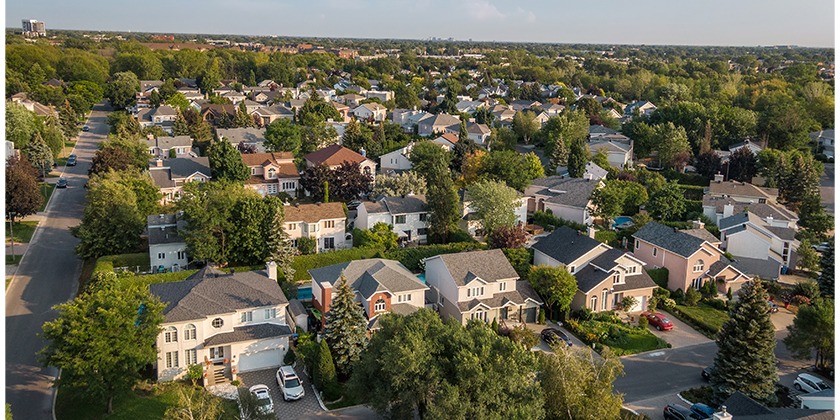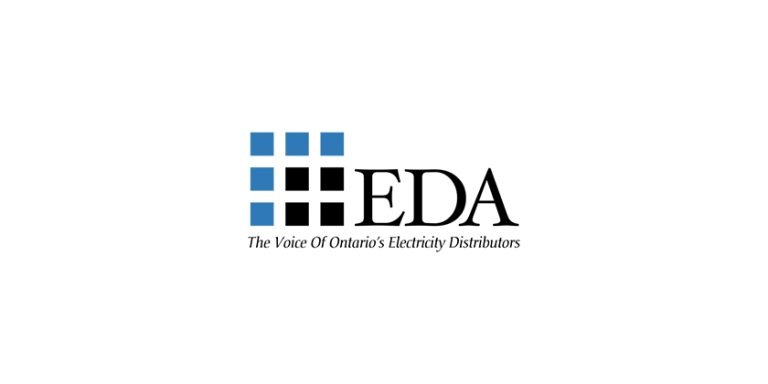Piloting New Ways to Make Homes More Energy-Efficient and Affordable

October 22, 2024
Canada’s buildings sector is the third-largest contributor to greenhouse gas emissions across the country. We must increase the scale and pace of retrofitting buildings across the country to make them more energy-efficient, increasing savings and reducing emissions.
A federal investment totalling $4.3 million has been announced for five projects funded under the Greener Neighbourhoods Pilot Program (GNPP) and the Energy Innovation Program (EIP), to support and inform deep energy retrofits.
The announcement was hosted with EnviroCentre at Gloucester’s Carver Place neighbourhood. EnviroCentre received over $2 million from NRCan’s programs for its project, which will develop the local building sector’s capacity to perform deep retrofits faster, saving time and money for retrofits in social housing across eastern Ontario. By customizing renovations for homes in eastern Ontario, this project will help save money for the families who need it most while also increasing the energy efficiency of their homes.
Gloucester’s Carver Place neighbourhood showcases how deep energy retrofits can deliver economic and environmental benefits for affordable housing, leading the way for future work that will create better and more affordable homes. Retrofits through the federally funded project will include:
- replacement of traditional furnaces with electric heat pumps
- upgrades to attic insulation and air sealing
- installation of new heat recovery ventilation systems to improve indoor air quality
Other projects announced today include:
- $1 million for the ReCover Initiative to develop a practical approach to deep energy retrofits for the most common types of residential buildings in Atlantic Canada.
- $1 million for the First Nations Power Authority of Saskatchewan to support the adoption of community-scale deep energy retrofits in Indigenous communities.
- $602,836 for Sustainable Buildings Canada to accelerate deep energy retrofits for Ontario’s social housing.
- $775,897 for Retrofit Canada Society for development of a National Retrofit Repository of case studies and solutions to inform on deep energy retrofits across Canada.
These projects will save money for building owners while reducing emissions that contribute to climate change.
Quick facts
- A deep energy retrofit is an extensive overhaul of a building’s systems that can generate large savings in energy costs, improve comfort and help decarbonize buildings. Measures may include:
- replacing the roof
- adding insulation in exterior walls
- replacing the heating, ventilation and air-conditioning system with a more efficient system like an electric heat pump
- Deep energy retrofits typically save at least 50 percent in energy consumption, reduce emissions by 80 percent, reduce utility costs and may in some circumstances improve resiliency and adaptation to climate change.
- Results from Carver Place neighbourhood test cases are promising, demonstrating an average annual energy reduction of 42 percent — approximately 35.5 gigajoules — and 2.4 tonnes of greenhouse gas (GHG) emissions, an 82-percent improvement.
- EnviroCentre received $1 million in funding through GNPP, through today’s announcement, and an additional $1 million dollars in funding through the Toward Net-Zero Homes and Communities (TNZ) funding program to retrofit over 80 townhomes for low-income residents. This TNZ funding was previously announced in July during the release of the Canada Green Building Strategy.
- Since 2016, the federal government has dedicated more than $10 billion toward decarbonizing homes and buildings through energy-efficient retrofits.
- With $35.5 million in total funding over five years, GNPP is piloting the Energiesprong deep energy retrofit model in the Canadian market, which accelerates the pace and scale of retrofits by aggregating similar homes and buildings in a neighbourhood to create mass demand for deep energy retrofits.
- NRCan’s Energy Innovation Program advances clean energy technologies that will help Canada meet its climate change targets while supporting the transition to a low-carbon economy. It funds research, development and demonstration projects and other related scientific activities.








